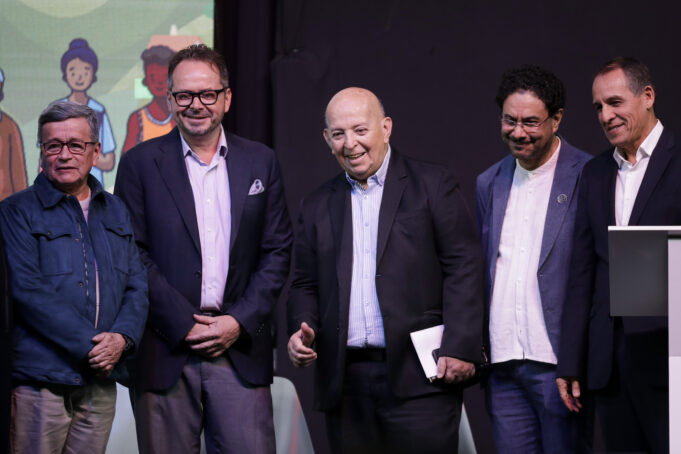As Colombia prepares to mark the seventh anniversary of the peace agreement that ended the decades-long conflict there, the Government has increased its efforts to realize the accord’s goals, the UN envoy for the country said on October 11.
Carlos Ruiz Massieu, Special Representative of the Secretary-General, told ambassadors at the Security Council, that soon in southern Colombia, land purchased by the Government was handed over to some 500 beneficiaries, among them former FARC-EP combatants, peasants and members of the indigenous communities
“Hopeful moments such as these are an increasingly common occurrence today, as Colombia’s government takes up with greater dynamism this crucial, overdue aspect of the Peace Agreement,” he said.
The Final Peace Agreement was signed in November 2016. It addressed several key issues, including ceasefire and disarmament, rural development, political participation and accountability. This year also marks the halfway point for the Agreement’s 15-year implementation timetable.
Project success
Mr. Ruiz Massieu, also the head of the UN Verification Mission in Colombia, highlighted one of its supported projects, through which women former combatants working in artisanal mines have augmented their incomes and that of the community by crafting and selling jewelry.
Former combatants and community members have also joined forces in planting trees to counter deforestation.
He, however, added that initiatives have been imperiled because of threats from illegal armed groups.
Armed groups activity
Mr. Ruiz Massieu also denounced the killing of two former FARC-EP members, since his last briefing to the Council, taking the total number of former combatants killed, since the Agreement was signed to 400.
“This is simply unacceptable and calls for urgent and concrete measures from the authorities for their protection, as well as that of social leaders and human rights defenders,” he said.
Dignified living conditions
The senior UN official recalled his recent trip to the former Territorial Area for Training and Reintegration of Carrizal, in the mountainous Antioquia province, where more than 50 former FARC-EP members and their families live alongside members of the local community.
Mr. Ruiz Massieu said “there, as in similar locations around the countryside, one can see the admirable persistence of former combatants and communities joining efforts to improve their lives and realize the transformations foreseen in the Final Peace Agreement.”
“As the relocation is planned, I reiterate my call on authorities to ensure dignified living conditions in the new location and to continue to look after the safety and well-being of communities who remain behind,” he added.
Upcoming local elections
Mr. Ruiz Massieu also informed the Security Council of the upcoming local elections in the country, which have been marred by instances of violence in several places.
“Unfortunately, violence has already impacted the electoral campaign in various regions, and has affected parties across the political spectrum, including former combatants and members of the Comunes party.”
He urged the authorities to guarantee that both candidates and voters can participate in the elections in the most inclusive and secure way possible throughout the country.
“This would deepen a tangible outcome of the Final Agreement,” he said.
Supporting peacebuilding
In conclusion, Mr. Ruiz Massieu stated that Colombia’s conflict was “once considered intractable.”
He noted that the peacebuilding efforts currently underway were achieved through perseverance in the face of serious challenges over decades.
“In times of tensions around the world, Colombia’s case is a reminder that even the most entrenched of conflicts can be resolved through dialogue, and a call to never desist in the search for peace,” Mr. Ruiz Massieu said. (UN News)













